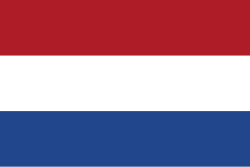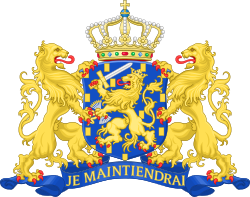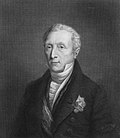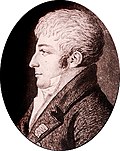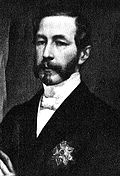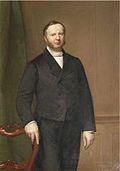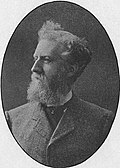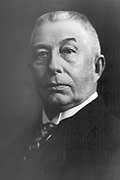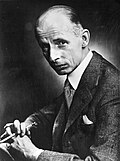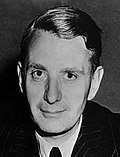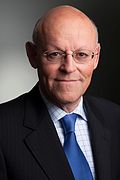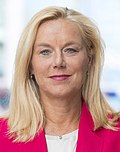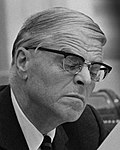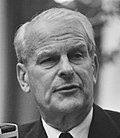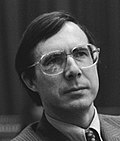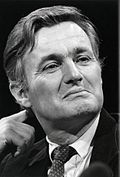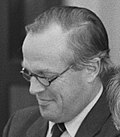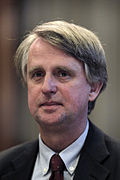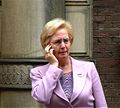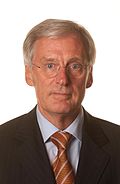Minister of Foreign Affairs Term of office Party Prime Minister (Cabinet) Dr. Jonkheer Herman van (1874–1942) 9 September 1918 – [Res] Independent Classical Liberal Charles Ruijs de (Ruijs de • II ) [ 17] [ 18] Hendrikus Colijn (Colijn I ) [ 19] Dirk Jan de Geer (De Geer I ) [ 20] Jonkheer Frans Beelaerts (1872–1956) 1 April 1927 – [App] Christian Charles Ruijs de (Ruijs de ) [ 21] Jonkheer Charles Ruijs de (Prime Minister ) (1869–1944) 20 April 1933 – [Ad interim ] Roman Catholic Jonkheer Andries Cornelis (1872–1957) 26 May 1933 – Independent Classical Liberal Hendrikus Colijn (Colijn II • III ) [ 22] [ 23] Hendrikus Colijn (Prime Minister ) (1869–1944) 24 June 1937 – [Acting] Anti-Revolutionary Hendrikus Colijn (Colijn IV ) [ 24] Jacob (1873–1961) 1 October 1937 – Independent Classical Liberal Hendrikus Colijn (Colijn V ) [ 25] Eelco van Kleffens (1894–1983) 10 August 1939 – [App] Independent Classical Liberal Dirk Jan de Geer (De Geer II ) [ 26] Pieter Sjoerds (Gerbrandy I II • III ) [ 27] [ 28] Willem (Schermerhorn– ) [ 29] Dr. Herman van Roijen (1905–1991) 1 March 1946 – Independent Social Democrat Baron Pim van (1892–1986) 3 July 1946 – Independent Conservative Liberal Louis Beel (Beel I ) [ 30] Dirk Stikker (1897–1979) 7 August 1948 – People's Party Willem Drees (Drees–Van Schaik Drees I ) [ 31] [ 32] Johan Beyen (1897–1976) 2 September 1952 – Independent Conservative Liberal Willem Drees (Drees II ) [ 33] Joseph Luns (1911–2002) 13 October 1956 – Catholic Willem Drees (Drees III ) [ 34] Louis Beel (Beel II ) [ 35] Jan de Quay (De Quay ) [ 36] Victor Marijnen (Marijnen ) [ 37] Jo Cals (Cals ) [ 38] Jelle Zijlstra (Zijlstra ) [ 39] Piet de Jong (De Jong ) [ 40] Norbert Schmelzer (1921–2008) 6 July 1971 – Catholic Barend Biesheuvel (Biesheuvel I • II ) [ 41] Max van der Stoel (1924–2011) 11 May 1973 – Labour Party Joop den Uyl (Den Uyl ) [ 42] Dr. Chris van (1924–2005) 19 December 1977 – People's Party Dries van Agt (Van Agt I ) [ 43] Max van der Stoel (1924–2011) 11 September 1981 – [Res] Labour Party Dries van Agt (Van Agt II ) [ 44] Dries van Agt (Prime Minister ) (1931–2024) 29 May 1982 – Christian Dries van Agt (Van Agt III ) [ 45] Hans van (1936–2025) 4 November 1982 – [App] Christian Ruud Lubbers (Lubbers I • II ) [ 46] [ 47] Ruud Lubbers (Lubbers III ) [ 48] Dr. Pieter Kooijmans (1933–2013) 3 January 1993 – Christian Hans van Mierlo (1931–2010) [Deputy] 22 August 1994 – Democrats 66 Wim Kok (Kok I ) [ 49] Jozias van Aartsen (born 1947) 3 August 1998 – People's Party Wim Kok (Kok II ) [ 50] Jaap de Hoop (born 1948) 22 July 2002 – [App] Christian Jan Peter (Balkenende I ) [ 51] Jan Peter (Balkenende II ) [ 52] Dr. Ben Bot (born 1937) 3 December 2003 – Christian Jan Peter (Balkenende III ) [ 53] Maxime Verhagen (born 1956) 22 February 2007 – [Minister] Christian Jan Peter (Balkenende IV ) [ 54] Dr. Uri Rosenthal (born 1945) 14 October 2010 – People's Party Mark Rutte (Rutte I ) [ 55] Frans Timmermans (born 1961) 5 November 2012 – [App] Labour Party Mark Rutte (Rutte II ) [ 56] Bert Koenders (born 1958) 17 October 2014 – Labour Party Halbe Zijlstra (born 1969) 26 October 2017 – [Res] People's Party Mark Rutte (Rutte III ) [ 57] Sigrid Kaag (born 1961) 13 February 2018 – [Acting] [Minister] Democrats 66 Stef Blok (born 1964) 7 March 2018 – [App] People's Party Sigrid Kaag (born 1961) 25 May 2021 – [Acting] [Minister] [Res] Democrats 66 Tom de Bruijn (born 1948) 17 September 2021 – [Acting] [Minister] Democrats 66 Dr. Ben Knapen (born 1951) 24 September 2021 – Christian Wopke Hoekstra (born 1975) [Deputy] 10 January 2022 – [App] Christian Mark Rutte (Rutte IV ) [ 58] Liesje (born 1983) 1 September 2023 – [Acting] [Minister] People's Party Hanke Bruins Slot (born 1977) 5 September 2023 – Christian Caspar Veldkamp (born 1964) 2 July 2024 – Incumbent New Social Dick Schoof (Schoof ) [ 59] 
